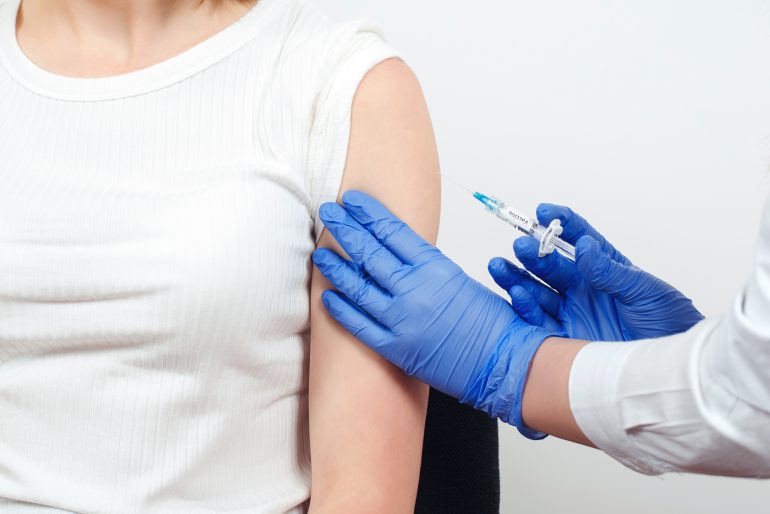The turnout for the HPV vaccination campaign for young adults 2023 in the Netherlands was disappointing. More than 1.3 million people between 19 and 27 are eligible for the free double-injection vaccination. However, only 20 per cent of them have as yet received their first shot, according to the National Institute for Public Health and the Environment (RIVM). The HPV campaign was initially planned to run until the endof 2023, but due to the low turnout, it has been extended until June 2024.
What is HPV?
HPV stands for Human Papilloma Virus, a virus that is sexually transmitted and can cause six types of cancer, including cervical cancer and cancer of the mouth, throat, labia, anus, penis and vagina. It is a highly contagious virus; eight out of ten people will get HPV at some point, although in most cases the immune system will clear it out in a year or two. However, in 10 to 20 per cent of the cases, this does not happen, and HPV can lead to cancer. Every year, 1,100 women and 400 men, on average, develop cancer due to HPV.
Vaccination campaigns
Until 2022, only girls aged 12 and over were invited to get the HPV vaccine. Since then, girls and boys who turn ten are invited to get the two required injections for complete protection against HPV.
In an attempt to catch up with the age group, this year, young adults born between 1 January 1996 and 31 December 2003 will be able to receive vaccinations for free. After 2023, they can pay for the vaccination themselves. Older people can also be vaccinated, with the costs paid by themselves.
Low interest
The campaign targeted individuals aged 19 to 27. ‘We knew in advance that it is not an easy target group,’ says a spokesperson for the Ministry of Health. ‘When you’re 20, you’re concerned with all kinds of things, but not with the possibility of getting sick later in life.’
The general turnout was low, and in a further analysis, the comparison between the women’s and men’s turnout shows that men seem more interested. Of the 1.3 million young adults invited for the free shot, 900,000 were men. Compared to women, 22 per cent of the invited men received the first shot, while only 16 per cent of the invited women went and got the vaccine.
Apart from a lack of interest, the spokesperson states that there has also been a lot of discussion about the vaccination in general since the Covid pandemic, including vaccine effectiveness and possible side effects, partially due to disinformation spread on social media.
Due to the low turnout, there is a risk that many injections go past their use-by date, according to a spokesperson for the RIVM. A turnout of 50 to 60 per cent of the target group was expected, for which vaccines were specially purchased. Nevertheless, State Secretary Van Ooijen stated: ‘We don’t have to throw them away because, fortunately, they have a decent shelf life, up to and including 2027.’ He clarified that a good destination for the vaccines will be found next year, when it will be clearer how many doses are left.
Petition to get the vaccine
While the vaccination campaign didn’t receive the expected interest from young adults, many women in their late 20s who fall just outside the age category would like the shot. Unfortunately, they are not allowed to get it for free; they will have to pay 400 euros in order to be protected against HPV.
Because of this situation, the editorial staff of the Dutch magazine Linda.meiden started a petition to either move the age limit for vaccination up, or bring forward the age of the smear test – currently, only women over 30 are invited for free smear tests. If neither is possible, they propose reducing the price of the vaccine. ‘Why should people between 27 and 30 years of age be at greater risk?’ states their petition, which has now reached more than 8,800 signatures. The editors seek to present these signatures before the House of Representatives.
No further extensions
For now, the Ministry of Health has no plans to expand the target group for the HPV vaccination. The group was determined based on advice from the Health Council, which questions the effectiveness of getting the vaccine above the age of 26.
Furthermore, the campaign will end permanently halfway through next year. According to a spokesperson for the Ministry of Health, ‘with the previous extension until 1 June 2024, we want to give as many people as possible the opportunity to get the two shots. But there are no plans for further extension.’ After this date, only teenagers will be regularly be invited for the vaccination.
Written by Bárbara Luque Alanís
